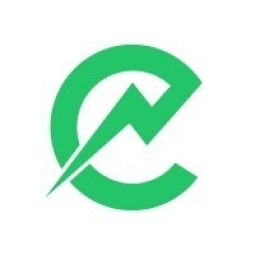Technology Category
- Analytics & Modeling - Data Mining
- Analytics & Modeling - Robotic Process Automation (RPA)
Applicable Industries
- Automotive
Use Cases
- Leasing Finance Automation
- Material Handling Automation
About The Customer
The customer is an automotive company based in North America. The company is part of the rapidly evolving automotive industry, which is currently undergoing a significant digital transformation. From autonomous vehicle technology to innovative electrification of vehicles, the company is at the forefront of these changes. The company is also part of a new wave of automotive startups that are taking a different approach to manufacturing vehicles. Instead of the traditional, complex process with limited flexibility, these companies are creating platforms that are highly configurable to the end-customer's needs. This shift allows customers to drive the process and customize their vehicles based on their individual usage.
The Challenge
An automotive company was struggling with the process of data scraping from multiple web sources. The company was using an alternative Robotic Process Automation (RPA) platform to execute this task. The data scraped was then processed using business logic and stored in the company's data lake. However, as the company began to scale its automation, the traditional per-bot licensing model offered by enterprise RPA vendors became too costly. The high costs associated with this model were proving to be a significant barrier to the adoption of new technologies and the further growth of the company.
The Solution
Thrive Automation, an IT service provider specializing in RPA solutions, partnered with the automotive company to deliver a more cost-effective solution. They introduced the ElectroNeek RPA platform, which easily replaced the original vendor’s bots. The ElectroNeek platform offered a more affordable alternative to the traditional per-bot licensing model, making it a more viable solution for the company's workflows. The Thrive Automation team was motivated by the potential of ElectroNeek’s platform and decided to expand their Center of Excellence capabilities around it. This strategic move allowed the automotive company to continue scaling its automation without the prohibitive costs associated with the previous RPA platform.
Operational Impact
Quantitative Benefit

Case Study missing?
Start adding your own!
Register with your work email and create a new case study profile for your business.
Related Case Studies.

Case Study
Integral Plant Maintenance
Mercedes-Benz and his partner GAZ chose Siemens to be its maintenance partner at a new engine plant in Yaroslavl, Russia. The new plant offers a capacity to manufacture diesel engines for the Russian market, for locally produced Sprinter Classic. In addition to engines for the local market, the Yaroslavl plant will also produce spare parts. Mercedes-Benz Russia and his partner needed a service partner in order to ensure the operation of these lines in a maintenance partnership arrangement. The challenges included coordinating the entire maintenance management operation, in particular inspections, corrective and predictive maintenance activities, and the optimizing spare parts management. Siemens developed a customized maintenance solution that includes all electronic and mechanical maintenance activities (Integral Plant Maintenance).

Case Study
Monitoring of Pressure Pumps in Automotive Industry
A large German/American producer of auto parts uses high-pressure pumps to deburr machined parts as a part of its production and quality check process. They decided to monitor these pumps to make sure they work properly and that they can see any indications leading to a potential failure before it affects their process.











